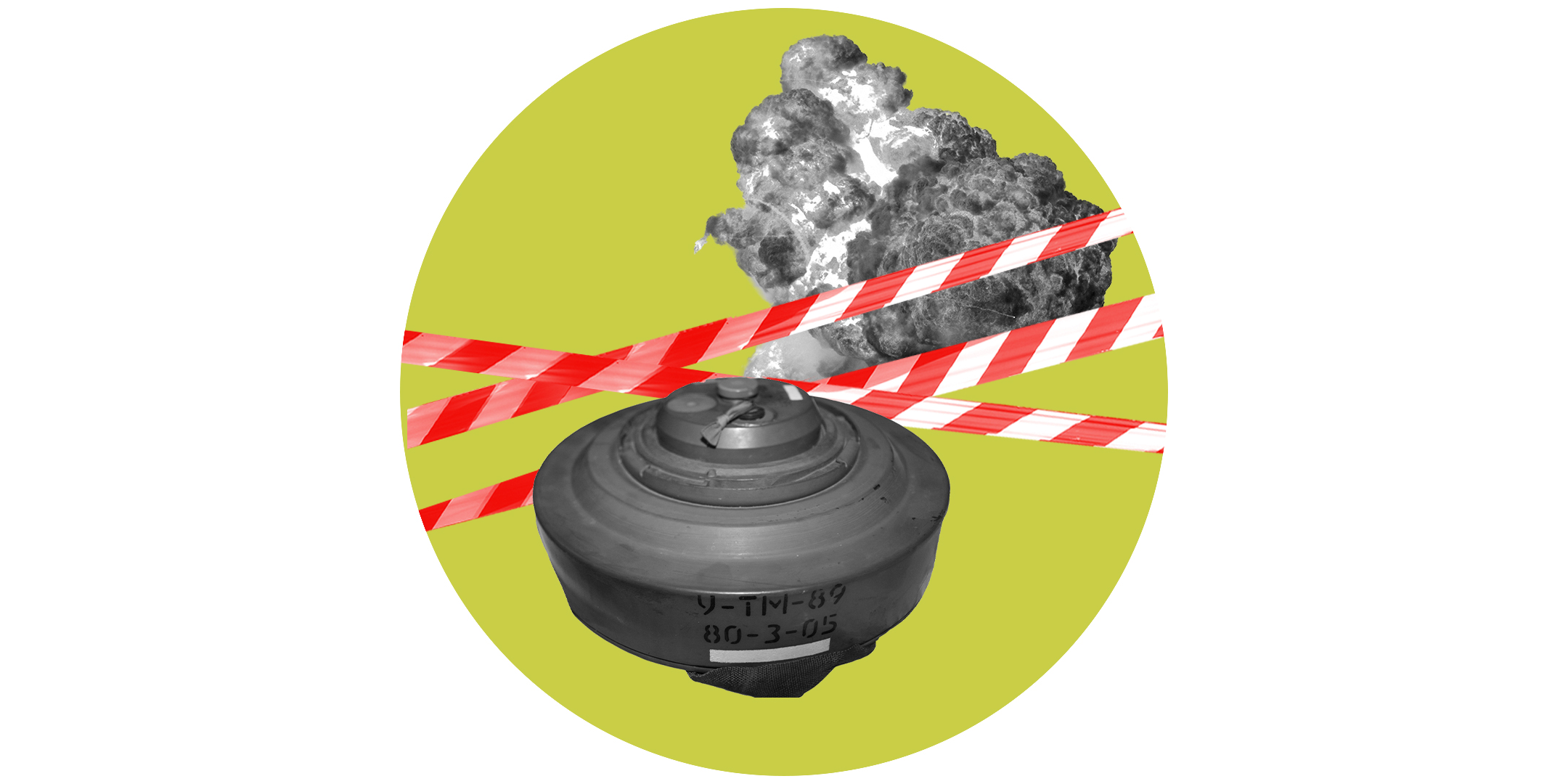
Ukraine's national football team will soon showcase its talent and strength at EURO2024, where it is set to compete against other European men's teams to win one of the most prestigious cups in football. Since Russia unleashed its full-scale war against Ukraine, the country's preparation for the championship has been arduous. Rubryka will discuss how, despite many losses and obstacles, Ukrainian footfall players stayed resilient and used their influence to garner support for their homeland and help those in need.
Football in Ukraine: past and present
Football was brought to Ukraine in the late 19th century by English sailors stationed in the southern city of Odesa. After forming a club, the Englishmen spread excitement and interest in the game among locals, who also created their own team at the turn of the 20th century. From that point on, many more football clubs were founded in Odesa. The sport first reached the west, where Lviv hosted Ukraine's first documented football match, and later spread to other corners of the country.
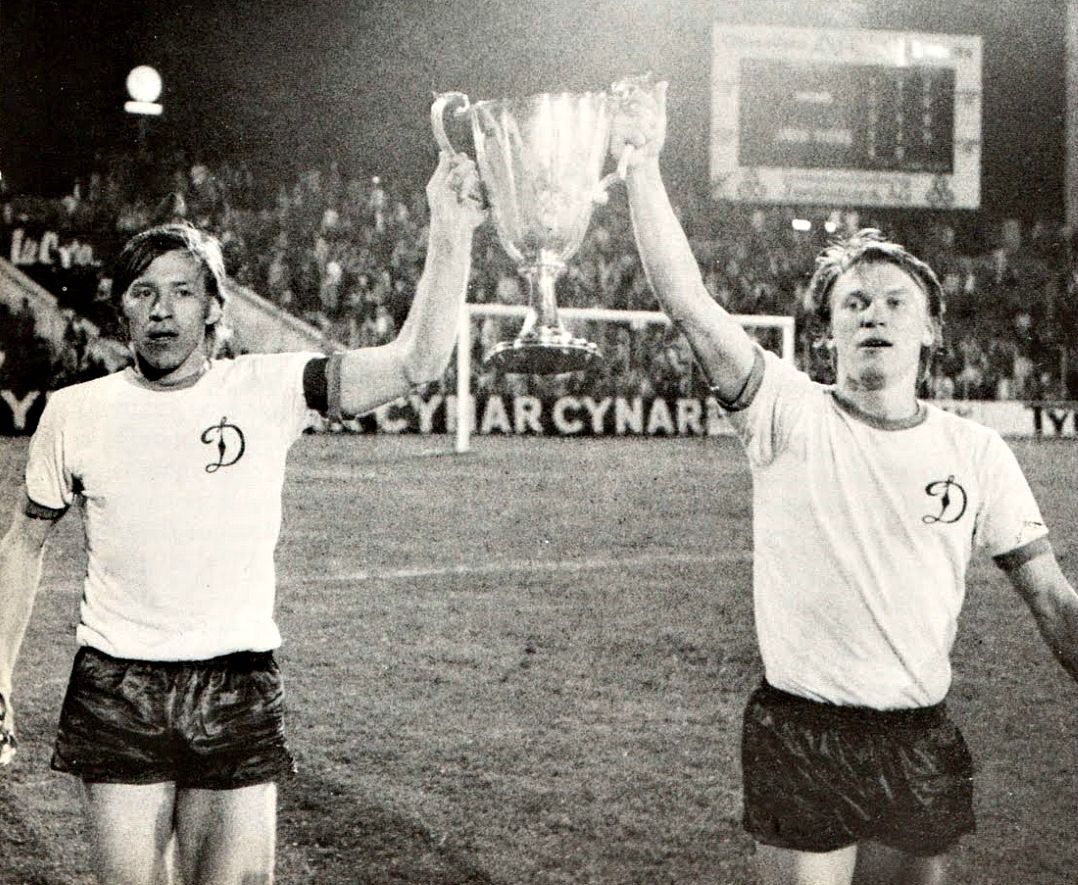
Ukrainian football club Dynamo Kyiv won the 1975 UEFA Cup Winners' Cup. Photo: sport.segodnya.ua
Since then, larger cities like Kyiv, Odesa, Kharkiv, Dnipro, and Donetsk have been the centers of Ukrainian football life, with major clubs in Ukraine's Premier, First, and Second Leagues. The most famous FCs in any league are Dynamo Kyiv, considered the 17th most legendary club worldwide according to France Football, and Shakhtar Donetsk, winner of the 2009 UEFA Cup, Europe's annual football club competition.
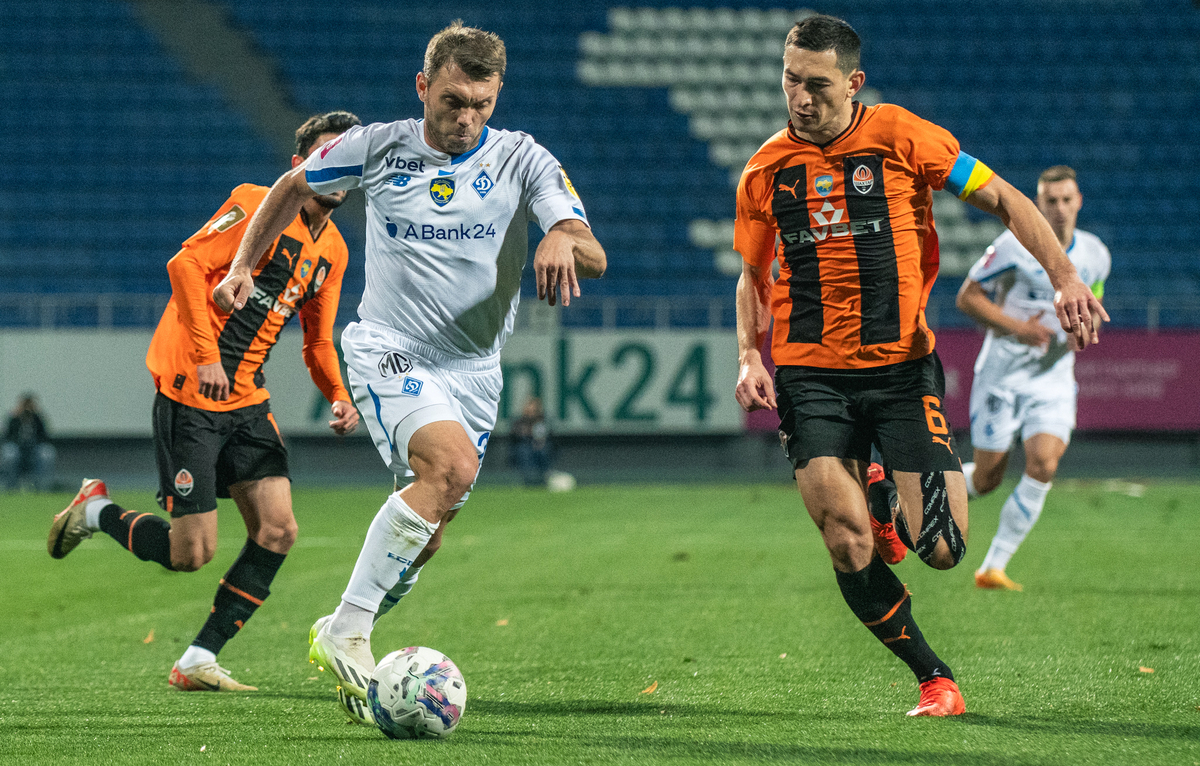
Ukrainian clubs Dynamo Kyiv and Shakhtar Donetsk competed for the win in the 13th tour of Ukraine's Premier League Championship in 2023. Photo: Oksana Vasylieva
Over the years, Ukrainian football has become the most popular sport in the country. Ukraine has its national organization — UAF, or the Ukrainian Association of Football. Under its wing, the men's national team has just won the match against Moldova as it enters the EURO2024, and the women's national team will soon compete to qualify for Women's EURO2025. The association also supports the Olympic team, five men's and three women's youth teams, and the amputee team, which recently won against Scotland in the European Amputee Football Championship.
Ukrainian football achievements
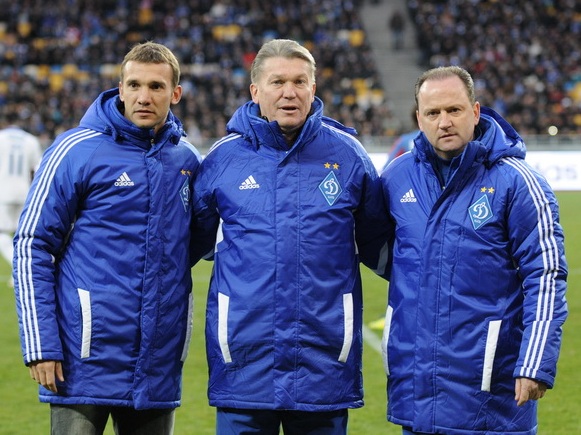
Three Ukrainian football players, Andriy Shevchenko, Oleh Blokhin, and Ihor Bielanov, are winners of the Ballon d'Or or the Golden Ball. Photo: Football.ua
As it developed, Ukrainian football produced some of the most talented players and coaches in the sport's global history, like Valerii Lobanovskyi, one of the most successful coaches in the world and the most decorated football coach of the 20th century. Three footballers from Ukraine — Andriy Shevchenko, Oleh Blokhin, and Ihor Bielanov — also hold the sport's most prestigious award, the Ballon d'Or or Golden Ball.
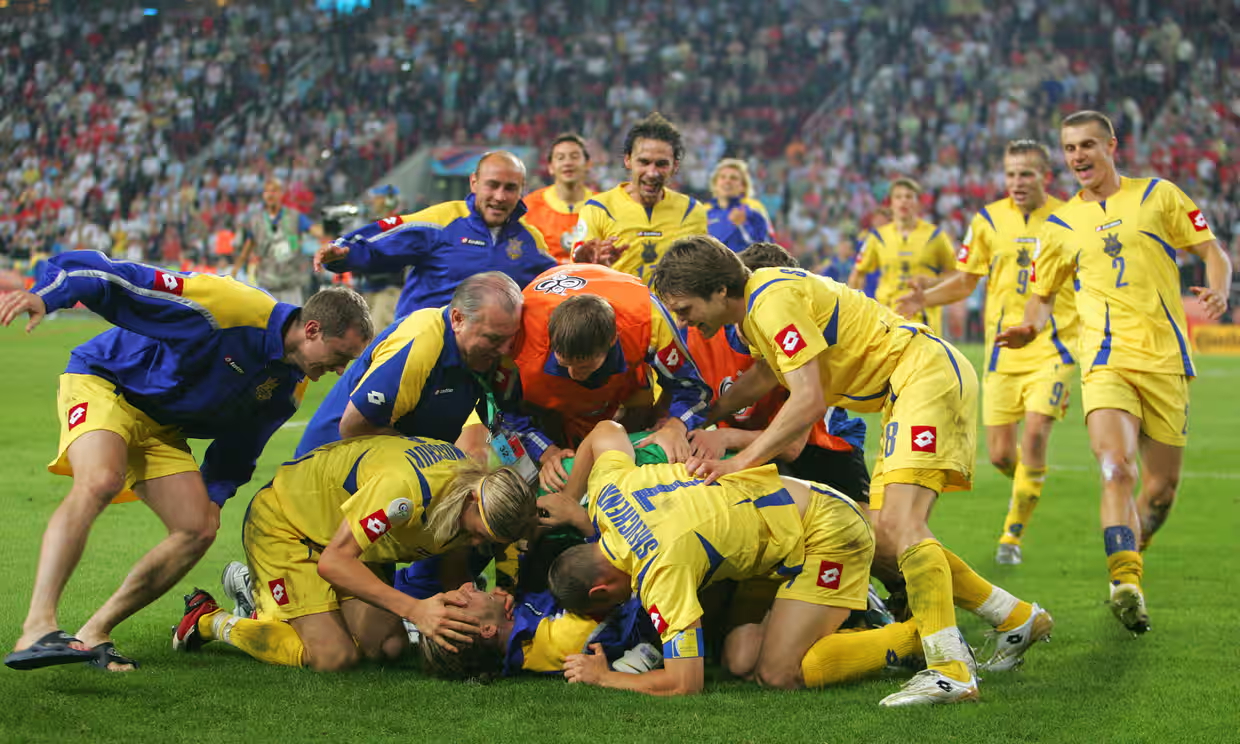
Ukraine's national team celebrates the goal of the 2006 FIFA World Cup match against Switzerland. Photo: Murad Sezer/AP
Blokhin also coached the Ukrainian national team for its first significant tournament, the 2006 FIFA World Cup. Then, Ukraine sensationally reached the competition's quarter-finals and received the right to host EURO2012 with Poland. Now, it is considered one of the most significant achievements of Ukrainian football since the country's independence.
Ukrainian football clubs and youth teams achieved even more wins. The national team with players over 20 years old (U-20) won the 2019 World Championship, the U-21 team placed second at the 2006 European Championship, and the U-19 team won EURO2009. The most outstanding achievement of a Ukrainian football club is Dynamo Kyiv's entry into the 1998/99 UEFA Champions League semi-finals.
Ukrainian football during war
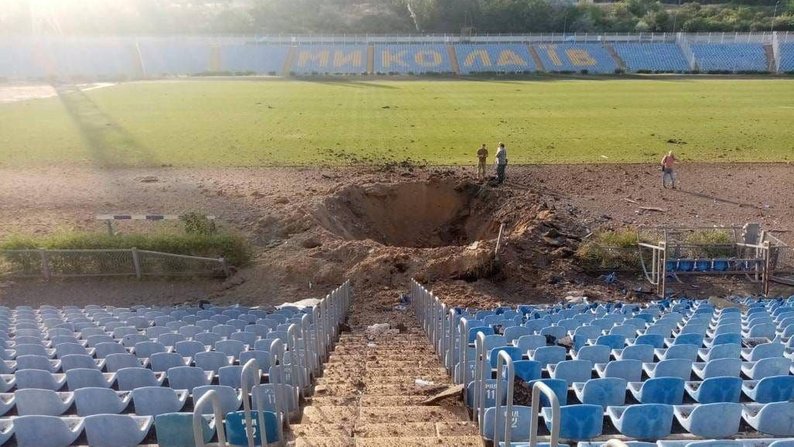
The explosion crater from a Russian missile at the Mykolaiv football club stadium after the June 28, 2022 attack. Photo: Nikvesti
Ukrainian football has been affected by war since 2014, when Russia invaded Ukraine's eastern Donetsk and Luhansk regions and the Crimean Peninsula. Because of hostilities, investors pulled back from financing Ukrainian clubs, and foreign football players decided to leave the country, hitting hard on Ukraine's teams and championships.
Many clubs had to flee their hometowns to safer cities, including the now-displaced Shakhtar Donetsk, which left its Donbas Arena stadium, moved around the country, and changed home arenas. Another club, Tavria from the city of Simferopol, first closed because of the Russian occupation of Crimea and moved to the neighboring Kherson region. Since the occupation of their last home province in the second Russian invasion, the club, like many in Ukraine, ceased to exist.
Even though, with time, Ukrainian football stabilized following the Donbas War, after Russia started its full-scale war against Ukraine in 2022, the sport suffered even more financial losses and destruction. According to media reports, ten football stadiums used by professional teams were damaged or destroyed in Russian attacks, including the home stadiums of DC Desna in the city of Chernihiv and FC Metalist in Kharkiv. As of June 2023, at least 343 sports facilities in Ukraine have been damaged or destroyed since the start of the war.
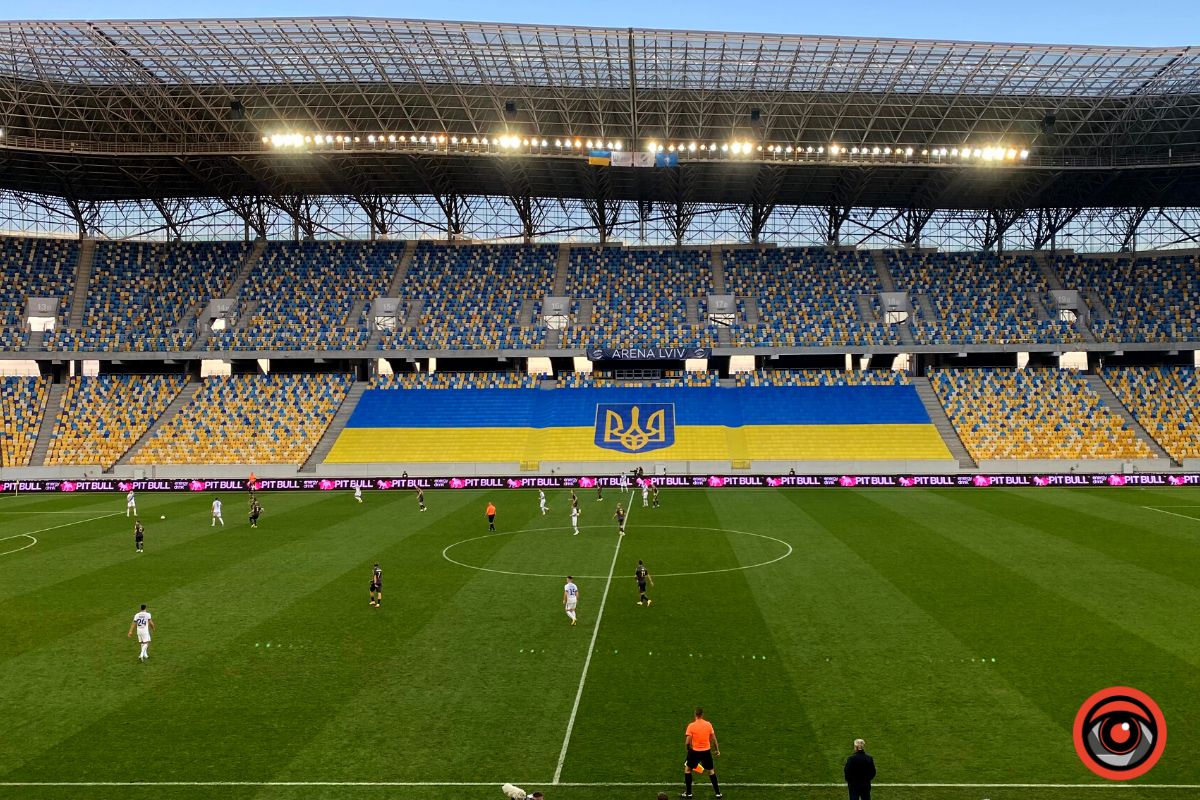
Despite the war, Ukraine opened its football championship on August 23, 2022. Due to security concerns, teams played in empty stadiums. Photo: kl.informator.ua
New challenges Ukrainian football faced raised the question of the sport's future in the country. But because the Ukrainian army could repel the invasion, the sport shook itself off and found purpose in times of war — promoting Ukraine worldwide and fundraising to support it. Although the Ukrainian authorities had many concerns, like the lack of funding and security risks, they still started the football championship to show the country's resilience and hope for peace.
How Ukrainian football advocates for Ukraine
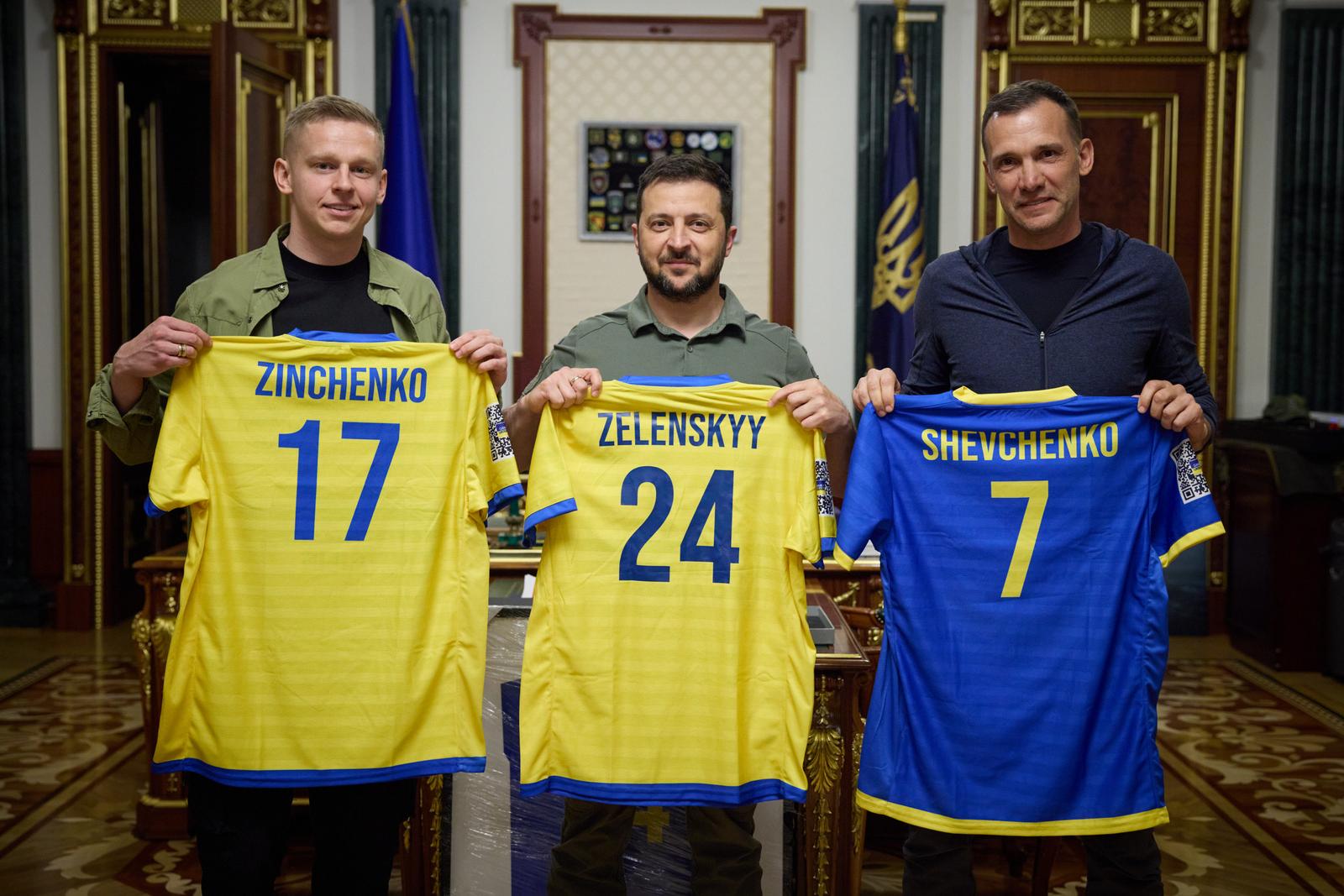
Ukrainian footballers Oleksandr Zinchenko and Andriy Shevchenko, along with President Volodymyr Zelensky. The star athletes support the president's fundraising initiative, UNITED24. Photo: UNITED24
Since 2022, successful Ukrainian footballers, including Andrii Yarmolenko, Oleksandr Zinchenko, Roman Zozulia, and others, have used their influence to raise millions for their homeland and people. The legend of Ukrainian football, Andriy Shevchenko, became the ambassador for President Zelensky's initiative, the UNITED24 fundraising platform, which collects funding for the country's army, reconstruction, and humanitarian aid.
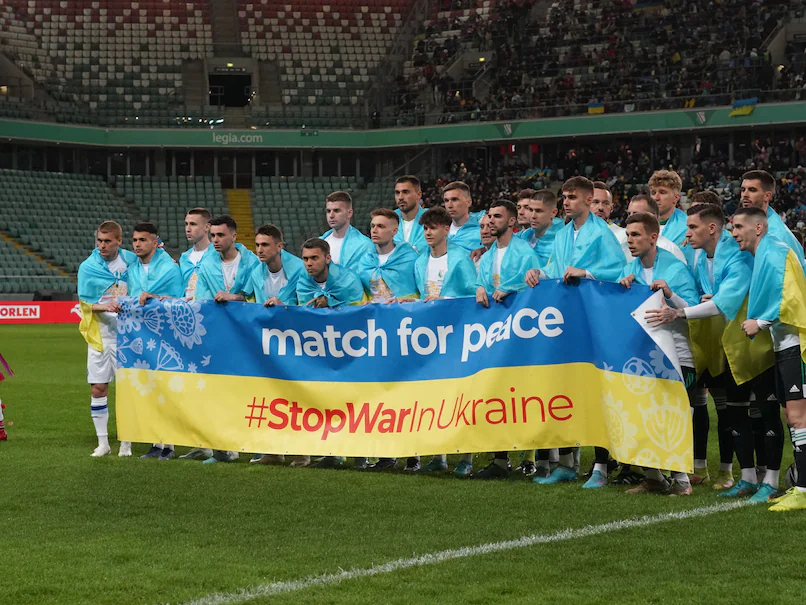
Dynamo Kyiv lined up ahead of their charity game, "Match for Peace," against Legia Warsaw in Poland in April 2022. Photo: Janek Sarzynski/AFP
Clubs have fundraised to support vulnerable Ukrainians affected by the war through a series of friendly charity matches as part of the Global Tour for Peace with Ukraine's national football team, organized by Dynamo Kyiv and Shakhtar Donetsk. Under slogans "Match for Peace! Stop the War!" and "Hand in Hand for Peace," the clubs played 32 games with teams from 16 countries, raising over €1 million in donations and promoting support for Ukraine.
The national team played friendlies as part of their training for the matches and World Cup qualifiers against Scotland and Wales and the European Nations League games against Ireland and Armenia. The Ukrainian Association of Football raised funding through virtual ticket sales for these friendly matches and donated all the proceeds to charity. Many nations worldwide joined the initiative, showing solidarity and condemning Russia's war.
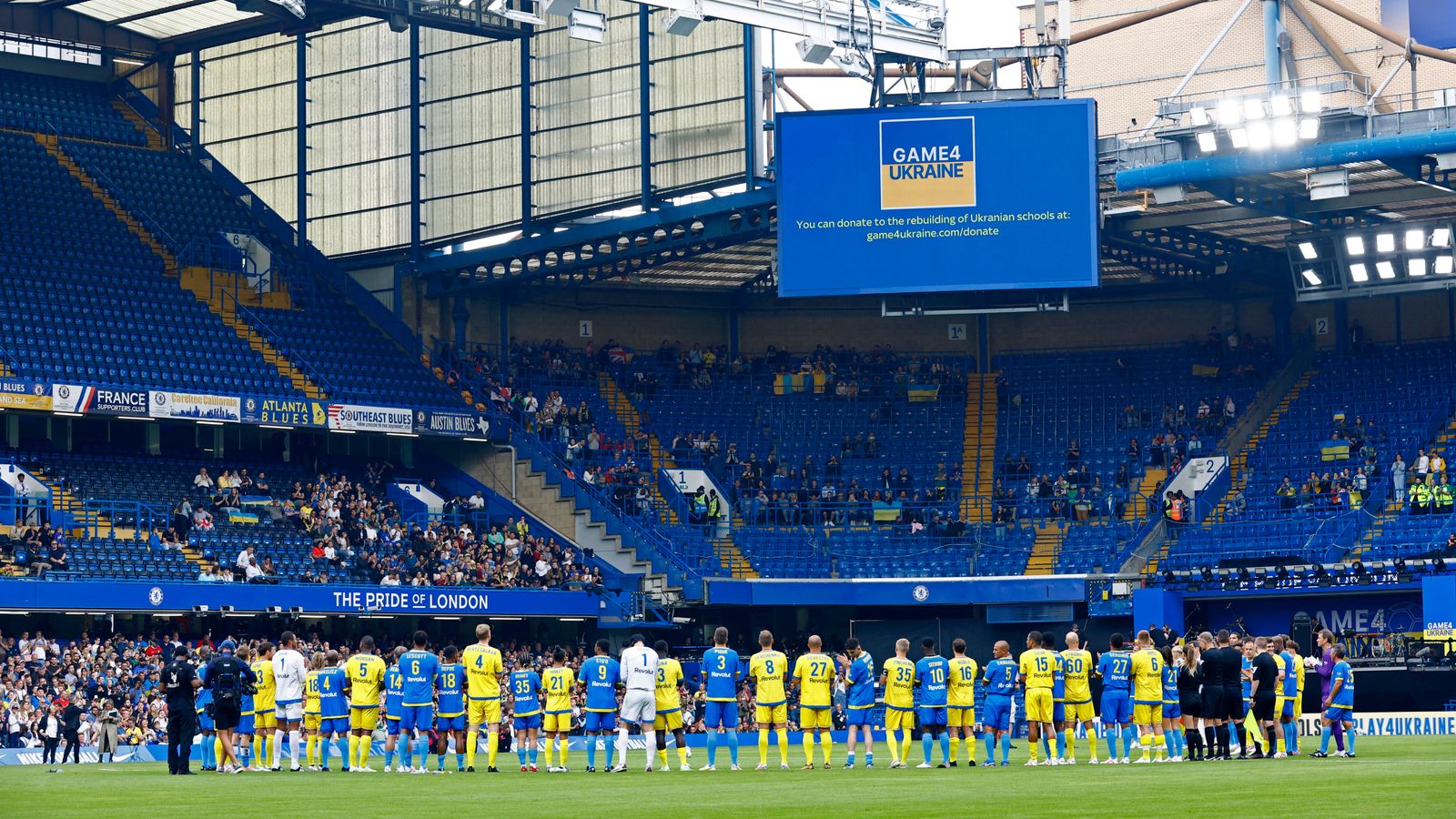
The teams lined up before their charity match, Game4Ukraine, in London on August 5, 2023. Photo: Sky News
The Game4Ukraine was played in August 2023 at the FC Chelsea home stadium in London, raising money for UNITED24 to help Ukraine rebuild its schools and infrastructure. Blue and yellow teams consisting of international and Ukrainian men's and women's football stars and celebrities, led by Oleksandr Zinchenko and Andriy Shevchenko, collected more than $300 million in donations from over 110 countries. Zinchenko, a Ukrainian sports star and FC Arsenal player, was the captain of the yellow team. He said the big names of international football coming to play at this charity match sent "a powerful message to the rest of the world that we stick together."
What's next for Ukrainian football?
The initiatives mentioned are just the tip of the iceberg and don't include personal donations or projects. While many Ukrainian football players and coaches joined the army to defend Ukraine on the front line, others who continued working in sports have held charity matches and fundraisers to support the military, veterans, refugees, children, and others in need. The defiant athletes don't know what the future holds for them, but they keep up the work and use every opportunity to show the unity and resilience of their people and attract more support for Ukraine.
At EURO2024, Ukraine's national football team will do just that and boost the morale of soldiers on the front and civilians in the rear. "We all understand that football is not the most important thing now in Ukraine," says the Ukrainian team's head coach, Serhii Rebrov. He adds that "successful performance in Europe" will give Ukrainians some positive emotions and show "the real character of our country."
Если вы нашли ошибку, пожалуйста, выделите фрагмент текста и нажмите Ctrl+Enter.



